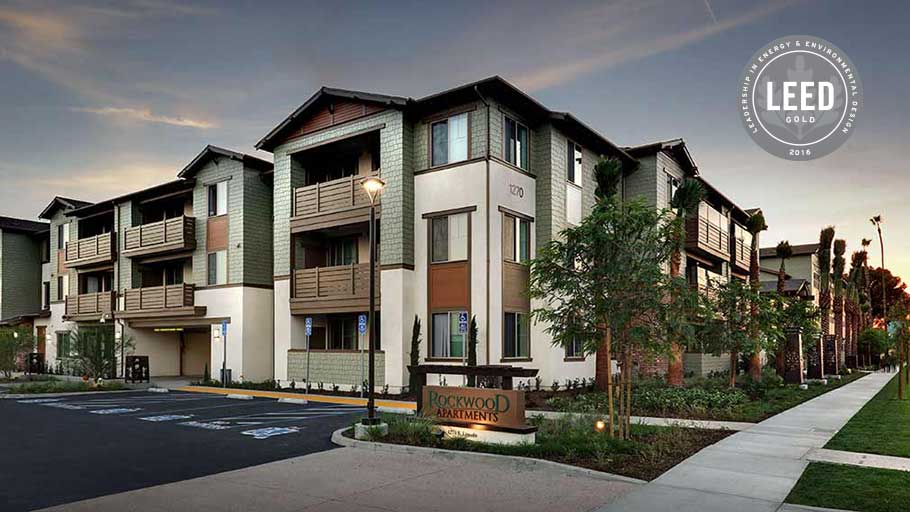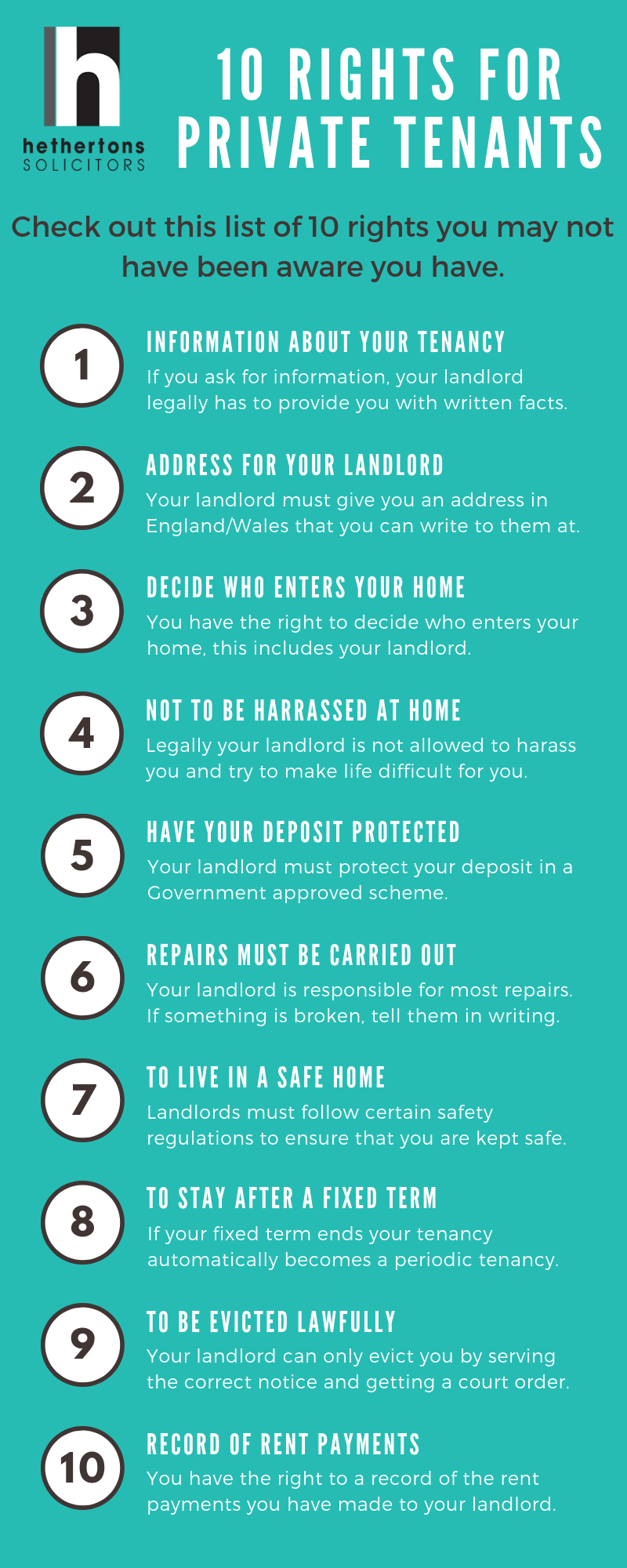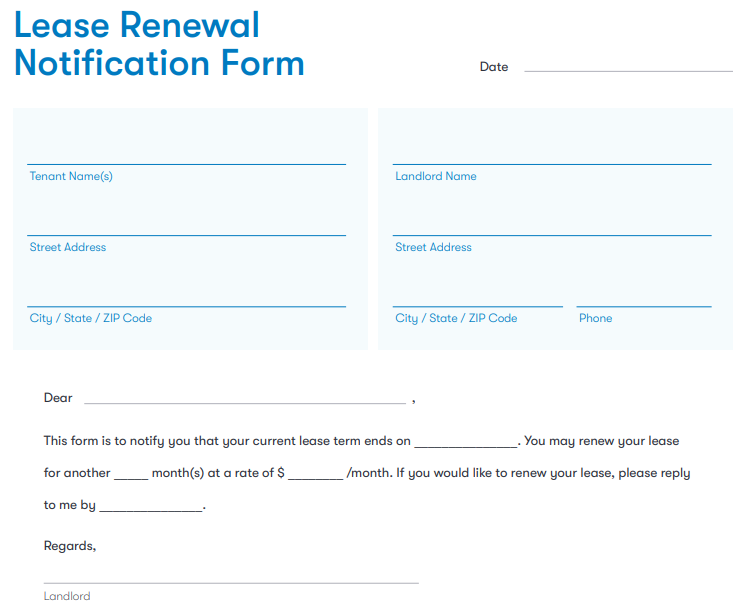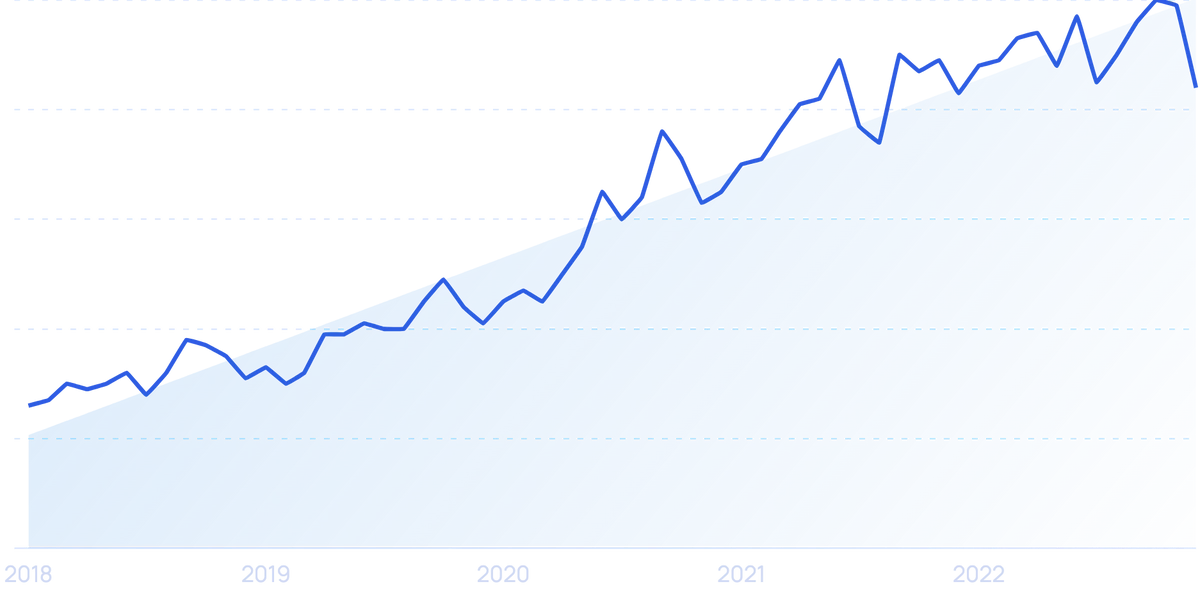
News Block
Fullwidth Featured
Strategic Tips for Successful Lease Renewal Negotiations

Strategic Tips for Successful Lease Renewal Negotiations
Lease renewal negotiations can be a pivotal moment for both tenants and landlords. Approaching this process strategically is key to reaching favorable terms for all parties involved. Here are essential tips to navigate lease renewal negotiations effectively.
Understanding the Current Rental Market
Before entering into lease renewal negotiations, tenants should research and understand the current state of the rental market in their area. Knowledge of market trends, average rental rates, and vacancy rates empowers tenants to negotiate from an informed position. This understanding provides a benchmark for assessing the fairness of proposed terms.
1. Start Early and Communicate Promptly
Early communication is fundamental to successful lease renewal negotiations. Tenants should initiate discussions well in advance of the lease expiration date. This allows both parties ample time to consider terms, negotiate, and avoid the pressure of last-minute decisions. Open and prompt communication sets a positive tone for the negotiation process.
2. Evaluate Your Rental History
Tenants with a positive rental history, including on-time payments and adherence to lease terms, have a strong negotiating position. Highlighting a history of responsible tenancy can be a compelling argument for favorable lease renewal terms. Documenting this history provides tangible evidence of a tenant’s reliability.
3. Assess the Property’s Condition
Landlords are more likely to consider favorable terms for tenants who have maintained the property well. Conduct a thorough assessment of the property’s condition, addressing any necessary repairs or maintenance. Presenting a well-maintained property enhances a tenant’s credibility and strengthens their negotiating position.
4. Research Comparable Rentals
To support their negotiation stance, tenants should research comparable rentals in the area. If similar properties are leasing at lower rates or offering more favorable terms, tenants can use this information to negotiate for competitive terms. Knowledge of the local rental market dynamics is a powerful tool in negotiations.
5. Prioritize Key Lease Terms
Identify key lease terms that are particularly important to you as a tenant. Whether it’s the rental rate, lease duration, or specific property features, prioritizing these terms helps focus the negotiation on critical aspects. Flexibility on less crucial terms can be employed to secure favorable conditions for the most important ones.
6. Propose Incremental Changes
When presenting desired changes to the lease terms, proposing incremental adjustments can be more effective than radical shifts. Gradual changes may be more palatable for landlords, increasing the likelihood of agreement. Clear and reasoned proposals help landlords understand the tenant’s perspective.
7. Seek Professional Advice if Needed
For tenants facing complex lease renewal negotiations or dealing with unique circumstances, seeking professional advice can be beneficial. Consulting with a real estate attorney or tenant advocacy service provides valuable insights and ensures that tenants understand their rights and options during the negotiation process.
8. Negotiate Beyond the Rent
Lease renewal negotiations aren’t solely about the rental rate. Tenants can explore other aspects of the lease, such as maintenance responsibilities, pet policies, or lease termination conditions. Negotiating beyond the rent allows tenants to tailor the lease
Attainable Comfort: Affordable Housing Solutions

Unlocking the Door to Comfort: Navigating Affordable Housing Solutions
In a world where the cost of living is on the rise, the pursuit of affordable housing has become a significant concern for many individuals and families. Fortunately, there are solutions that prioritize attainability without compromising on comfort. Let’s delve into the realm of affordable housing and explore the avenues that lead to secure and budget-friendly living.
Understanding the Need for Affordable Housing
The demand for affordable housing is rooted in the fundamental desire for a stable and secure living environment. With the cost of living expenses steadily increasing, individuals and families are seeking housing solutions that align with their financial capabilities. Affordable housing addresses this need by providing options that are budget-friendly without sacrificing quality.
Financial Benefits of Affordable Housing
Affordable housing goes beyond just lower rent or mortgage payments; it offers a range of financial benefits. Reduced housing costs allow individuals to allocate their resources more efficiently, contributing to overall financial stability. This, in turn, frees up funds for other essential needs, such as education, healthcare, and personal development.
Community and Connectivity
Affordable housing often fosters a sense of community. When individuals with similar financial circumstances come together, a supportive environment can emerge. This sense of connection contributes to the overall well-being of residents, creating a community where people can share resources, ideas, and support one another.
Economic Impact of Affordable Housing
The availability of affordable housing can positively impact the local economy. When individuals and families have access to affordable living spaces, they are more likely to contribute to the community’s economic growth. This can include increased spending on local businesses, job creation, and a boost to the overall economic vitality of the area.
Affordable Housing as a Path to Homeownership
For many, affordable housing serves as a stepping stone toward homeownership. With reduced monthly expenses, individuals can save for a down payment or navigate the complexities of the real estate market more comfortably. Affordable housing options often provide the flexibility needed to transition from renting to owning.
Exploring Affordable Housing Opportunities
If you’re in search of affordable housing solutions, Walenshipnigltd.com offers a variety of options designed to meet your needs. Their commitment to providing quality living spaces at affordable prices makes them a go-to destination for those seeking comfort without breaking the bank. Explore the array of affordable housing choices and find the home that suits your budget and lifestyle.
Balancing Affordability and Quality
While seeking affordable housing is crucial, it’s equally important to consider the quality of living spaces. Affordable housing solutions should not compromise on comfort, safety, or essential amenities. Finding the right balance ensures that individuals and families can enjoy a comfortable living environment without sacrificing their well-being.
Government Initiatives and Support
Governments often play a vital role in addressing the need for affordable housing. Various initiatives, subsidies, and support programs are implemented to make housing more accessible to a broader range of people. Keeping abreast of these programs can provide additional avenues for
Elevating Spaces: Leasehold Improvements Unveiled

Unlocking Potential: The Impact of Leasehold Improvements
Leasehold improvements, often referred to as “build-outs” or “fit-outs,” play a pivotal role in transforming commercial spaces to meet the unique needs of tenants. These improvements can significantly enhance the functionality, aesthetics, and overall appeal of leased premises. In this article, we delve into the world of leasehold improvements, exploring their importance, the decision-making process, and the benefits they bring to both landlords and tenants.
Understanding Leasehold Improvements: A Transformative Journey
Leasehold improvements encompass any alterations made to a rented space to customize it according to the tenant’s requirements. This could involve structural changes, interior design upgrades, or the addition of specialized features. These improvements are typically negotiated between the landlord and tenant as part of the lease agreement, and their scope can vary widely depending on the nature of the business and the tenant’s specific needs.
Negotiating Lease Terms: The Foundation for Improvements
The negotiation of lease terms is where the journey of leasehold improvements begins. During lease negotiations, tenants may express their desire for specific modifications to better align the space with their business objectives. Landlords, in turn, consider the feasibility and potential impact of these improvements on the property. Clear communication and a thorough understanding of each party’s expectations lay the foundation for a successful leasehold improvement process.
Customization to Fit Business Needs: Tailoring Spaces for Success
One of the primary purposes of leasehold improvements is to customize the leased space to accommodate the unique needs of the tenant’s business. This could involve creating private offices, installing specialized equipment, or designing a layout that optimizes workflow. The goal is to tailor the space in a way that enhances operational efficiency and contributes to the success of the tenant’s business endeavors.
Budgeting for Improvements: Striking a Balance
While leasehold improvements offer the opportunity to create a bespoke space, budget considerations are paramount. Both landlords and tenants need to strike a balance between achieving the desired modifications and managing costs effectively. Establishing a clear budget for leasehold improvements and defining who bears the financial responsibility for specific enhancements are crucial aspects of the negotiation process.
Types of Leasehold Improvements: From Aesthetics to Functionality
Leasehold improvements can encompass a wide range of changes, addressing both aesthetics and functionality. Aesthetic improvements may include the installation of new flooring, lighting fixtures, or interior finishes to create a visually appealing environment. Functional improvements could involve the addition of partition walls, the installation of specialized equipment, or the enhancement of accessibility features.
Adding Value to the Property: Long-Term Benefits
From a landlord’s perspective, supporting leasehold improvements can add long-term value to the property. Upgraded and customized spaces attract tenants, potentially leading to higher rental income and increased property value. Landlords who recognize and facilitate these improvements contribute to the overall desirability of their commercial properties in the market.
Depreciation and Tax Considerations: Financial Implications
Leasehold improvements may have financial implications for both landlords and tenants. For tenants, these improvements may be depreciated over time, impacting the financial
Balancing Act: Understanding Tenant Privacy Rights

Balancing Act: Understanding Tenant Privacy Rights
Tenant privacy is a fundamental aspect of the landlord-tenant relationship, governed by legal principles designed to safeguard tenants’ rights. This article explores the importance of tenant privacy rights, the legal framework that protects them, and the responsibilities of both landlords and tenants in maintaining this delicate balance.
Foundations of Tenant Privacy Rights
Tenant privacy rights are rooted in the right to quiet enjoyment, a legal concept that guarantees tenants the right to use and enjoy their rented property without interference. This right encompasses not only freedom from unnecessary disturbances but also protection against unwarranted intrusions into personal space.
Landlord Responsibilities and Legal Limitations
Landlords have a duty to respect tenant privacy rights. This includes providing notice before entering the rented premises, typically for repairs or inspections. However, this right is not absolute, and landlords may enter without notice in emergency situations or when there is mutual agreement between both parties.
Notice Requirements for Entry
To maintain a balance between landlord access and tenant privacy, notice requirements are established. Landlords are generally required to provide advance notice before entering a rental property, typically 24 to 48 hours. This notice allows tenants to prepare for the entry and ensures that their privacy is not unduly disrupted.
Handling Repairs and Maintenance
One common scenario where landlord entry occurs is for repairs and maintenance. While landlords have the right to address property issues, they must do so in a way that respects tenant privacy. Providing timely notice and coordinating with tenants to find mutually agreeable times for entry helps strike this balance.
Security Measures and Surveillance
Balancing tenant privacy also involves addressing security measures and surveillance. While landlords have a legitimate interest in ensuring the safety of their property, tenants have a right to live without constant surveillance. Any security measures, such as cameras or access control systems, must be reasonable and respect tenant privacy.
Tenant Responsibilities for Privacy
Tenants also play a role in maintaining their own privacy. Properly securing the property, not causing unnecessary disturbances, and promptly reporting maintenance issues can contribute to a positive landlord-tenant relationship. It’s crucial for tenants to understand their responsibilities in upholding the right to quiet enjoyment.
Legal Protections Against Unlawful Intrusions
Legal protections are in place to guard against unlawful intrusions into tenant privacy. If a landlord violates notice requirements, enters the property without a valid reason, or engages in harassment, tenants have legal recourse. Understanding these protections empowers tenants to assert their rights.
Handling Tenant Information and Data
Tenant privacy extends beyond physical space to include personal information and data. Landlords must handle tenant information responsibly, keeping it confidential and secure. This includes sensitive information such as social security numbers, financial details, and other personal data provided during the leasing process.
Educational Resources for Tenants and Landlords
Educational resources play a crucial role in fostering awareness of tenant privacy rights. Websites like Walenshipnigltd.com offer valuable information, guides, and resources for both tenants and landlords. Accessing these materials empowers individuals
Choosing the Right Property Management: Expert Solutions for Landlords

Choosing the Right Property Management: Expert Solutions for Landlords
Property management companies play a pivotal role in easing the burden of landlords by handling the day-to-day operations of rental properties. This article explores the benefits of hiring a property management company and provides insights into selecting the right one for your investment.
Understanding the Role of Property Management Companies
Property management companies act as intermediaries between landlords and tenants, handling various responsibilities to ensure smooth operations. Their roles may include marketing rental properties, screening tenants, collecting rent, overseeing maintenance, and addressing tenant concerns. Understanding the breadth of their services is crucial when considering hiring one.
Benefits of Hiring a Property Management Company
One of the primary advantages of hiring a property management company is the time and stress it saves landlords. These professionals have the expertise to handle legalities, tenant issues, and property maintenance, allowing landlords to focus on other aspects of their lives or invest in additional properties. Additionally, property management companies often have access to a network of reliable contractors and service providers.
Efficient Tenant Screening Process
Tenant screening is a critical aspect of property management, and reputable companies excel in this area. They conduct thorough background checks, verify rental history, and assess financial capabilities to ensure that landlords have reliable and responsible tenants. This reduces the risk of late payments, property damage, or eviction issues.
Effective Marketing Strategies
Property management companies leverage their experience to implement effective marketing strategies. They know how to showcase rental properties, target the right audience, and use online platforms efficiently. This expertise can lead to quicker property occupancy and reduced vacancies, optimizing rental income for landlords.
Rent Collection and Financial Management
Handling rent collection can be a challenging task for landlords. Property management companies streamline this process by implementing efficient rent collection systems. Additionally, they provide financial management services, offering detailed reports on income and expenses, helping landlords maintain a clear overview of their property’s financial performance.
Prompt Maintenance and Repairs
Property maintenance is a key responsibility of management companies. They ensure that the property is well-maintained, addressing issues promptly and proactively. This not only preserves the property’s value but also contributes to tenant satisfaction. A well-maintained property attracts and retains quality tenants.
Navigating Legalities and Dispute Resolution
Property management companies are well-versed in landlord-tenant laws, ensuring that landlords remain compliant with regulations. In case of disputes or legal issues, these professionals have the knowledge and experience to navigate the complexities, potentially saving landlords from costly legal battles.
Personalized Service and Communication
While property management companies handle various tasks, a reputable one also prioritizes personalized service and communication. Landlords should feel comfortable discussing concerns, receiving regular updates on property performance, and having open lines of communication with their property management team.
Choosing the Right Property Management Company
Selecting the right property management company requires careful consideration. Research and compare companies, assessing their reputation, experience, and client reviews. Consider the range of services they offer and their fee structure. A reputable company will
Renewing a Lease: Strategies for Seamless Extension

Renewing a Lease: Strategies for Seamless Extension
Lease renewal is a significant milestone in the landlord-tenant relationship, offering an opportunity for continuity and mutual benefit. Whether you’re a tenant looking to extend your stay or a landlord aiming to retain a reliable occupant, the process of renewing a lease requires thoughtful consideration and strategic planning.
Assessing the Current Lease Terms
Before initiating the renewal process, both tenants and landlords should thoroughly review the existing lease agreement. Understanding the current terms, including rent amounts, lease duration, and any special conditions, provides a foundation for negotiating and updating the lease for the upcoming term.
Initiating Early Communication
Open and timely communication is key to a successful lease renewal. Landlords should initiate discussions with tenants well before the current lease expires, providing ample time for both parties to express their intentions and negotiate new terms if necessary. Early communication reduces uncertainty and allows for smoother planning.
Renewing a Lease Link: Renewing a lease
Negotiating Updated Terms
Lease renewal is an opportunity to revisit and potentially update the terms of the agreement. This may include adjusting the rent to reflect market changes, modifying lease duration, or incorporating new clauses. Both parties should approach negotiations with flexibility and a willingness to find mutually beneficial terms.
Conducting a Property Assessment
For landlords, the lease renewal process is an opportune time to assess the condition of the property. Conducting a thorough inspection helps identify any necessary repairs or maintenance issues that need addressing before extending the lease. Tenants can also use this time to communicate any concerns or repair requests.
Consideration of Rent Adjustments
Rent adjustments are a common aspect of lease renewals. Landlords may consider market trends, property improvements, or changes in operating costs when determining whether a rent increase is necessary. Tenants, on the other hand, should be prepared to discuss and negotiate such adjustments to reach a fair agreement.
Addressing Tenant Concerns
During lease renewal discussions, landlords should be attentive to any concerns or requests raised by tenants. Whether it’s a desire for specific property improvements, modifications to the lease terms, or addressing maintenance issues, a landlord’s responsiveness can positively influence a tenant’s decision to renew the lease.
Providing Incentives for Renewal
Landlords may consider offering incentives to encourage tenants to renew their leases. This could include a rent discount, upgrades to the property, or other perks. Incentives demonstrate appreciation for reliable tenants and can contribute to a positive and collaborative landlord-tenant relationship.
Renewal Documentation and Signatures
Once both parties have agreed on the renewed lease terms, it’s crucial to document these changes in a written lease renewal agreement. This document should outline the updated terms, including rent amounts, lease duration, and any other negotiated conditions. Signatures from both parties signify mutual agreement and commitment.
Communicating the Renewal Decision
Whether the decision is to renew or not, clear communication is essential. Landlords should promptly inform tenants of their decision, providing any necessary documentation related to the renewed lease. Similarly, tenants should communicate their intentions
Fleeting Comfort: Exploring Short-Term Rental Sanctuaries
![]()
Embracing Transience: The Allure of Short-Term Rentals
Short-term rentals have become a popular choice for those seeking flexible and temporary living arrangements. In this guide, we delve into the world of short-term rentals, exploring the benefits, considerations, and the unique appeal these spaces hold for individuals looking for comfort and convenience during transient periods.
Flexibility for Changing Lifestyles: The Rise of Short-Term Rentals
The increasing prevalence of short-term rentals can be attributed to the evolving lifestyles of individuals. Whether it’s for business trips, extended vacations, or transitional periods between permanent residences, short-term rentals offer the flexibility needed to adapt to changing circumstances. The transient nature aligns seamlessly with the dynamic rhythm of modern life.
Comforts of Home Away From Home: A Temporary Sanctuary
Short-term rentals provide a “home away from home” experience, offering the comforts and amenities that make living spaces feel welcoming and familiar. These temporary sanctuaries often come fully furnished, equipped with essentials, and ready for immediate occupancy, ensuring a smooth and stress-free transition for tenants.
Cost-Efficient Solutions: A Budget-Friendly Alternative
Opting for a short-term rental can be a cost-efficient solution, especially for individuals who don’t require a long-term commitment. The overall expenses, including rent and utilities, are often more manageable than committing to a traditional lease. This financial flexibility makes short-term rentals an attractive option for various budget-conscious individuals.
Ideal for Temporary Assignments: Business and Work-Related Stays
Short-term rentals cater to individuals with temporary work assignments or business-related stays. Whether it’s a project-based assignment, a training program, or a temporary relocation, these rentals provide the ideal living space for the duration of the work commitment. The convenience allows professionals to focus on their tasks without the burden of long-term housing commitments.
Vacationing with Comfort and Freedom: Extended Getaways
For those embarking on extended vacations, short-term rentals offer an appealing alternative to hotels. The spaciousness, privacy, and homely atmosphere make these rentals particularly suitable for families or groups traveling together. The ability to live like a local enhances the overall vacation experience, providing a more immersive and authentic stay.
Transitioning Between Homes: A Bridge During Relocations
Short-term rentals serve as a bridge for individuals undergoing relocations. Whether it’s awaiting the completion of a new home purchase or transitioning between cities, these rentals offer a temporary residence. The convenience of a fully furnished space reduces the stress associated with the logistics of moving and provides a comfortable interim solution.
Exploring Short-Term Options at Walenship Nigeria Limited: A Diverse Portfolio
For those seeking short-term rental options with a diverse range of choices, Walenship Nigeria Limited presents a portfolio that caters to different preferences and needs. From cozy apartments to spacious houses, their short-term rentals provide a variety of options for individuals looking for comfort and flexibility.
Conclusion: Short-Term Rentals – A Temporary Haven
In conclusion, short-term rentals offer a temporary haven for individuals navigating through transitional periods in their lives. The flexibility, comforts, and cost-efficiency make these rentals an attractive option for a wide range of scenarios. Explore short-term
Fulfilling Lease Commitments: A Tenant’s Guide to Success

Fulfilling Lease Commitments: A Tenant’s Guide to Success
Leasing a property comes with responsibilities, and fulfilling lease commitments is crucial for maintaining a positive tenant-landlord relationship. From meeting financial obligations to taking care of the rented space, tenants play a vital role in ensuring a harmonious and successful lease period.
Understanding Lease Terms and Obligations
The first step in lease fulfillment is a comprehensive understanding of the lease terms and obligations. Tenants should thoroughly read and comprehend the lease agreement before signing. Knowing the expectations regarding rent, maintenance, and other stipulations is essential for smooth lease execution.
Timely Rent Payments
One of the primary commitments in a lease agreement is the timely payment of rent. Adhering to the specified due dates prevents late fees and establishes a reliable payment history. Tenants should prioritize budgeting and planning to ensure that rent is paid on time, contributing to a positive landlord-tenant relationship.
Proactive Communication with the Landlord
Open communication is a key factor in lease fulfillment. Tenants should communicate proactively with the landlord regarding any concerns, repairs, or issues that may arise during the lease period. Clear communication fosters a cooperative environment and allows for prompt resolution of any challenges.
Respecting the Property and Maintenance Duties
Respecting the rented property is a fundamental aspect of lease fulfillment. Tenants are typically responsible for maintaining the property in good condition, including routine cleaning and addressing minor repairs. Fulfilling these maintenance duties ensures the property’s longevity and the tenant’s satisfaction.
Compliance with Rules and Regulations
Lease agreements often include specific rules and regulations that tenants must adhere to. This may include restrictions on making alterations to the property, noise levels, or the number of occupants. Tenants should familiarize themselves with these rules and ensure compliance throughout the lease term.
Renewal and Extension Considerations
As the end of the lease term approaches, tenants should consider their future plans. If interested in continuing the lease, communication with the landlord about renewal or extension options is crucial. Planning ahead allows both parties to make informed decisions about the next steps in the leasing arrangement.
Responsible Pet Ownership, if Applicable
For tenants with pets, responsible pet ownership is a key component of lease fulfillment. This involves adhering to any pet-related clauses in the lease, such as size restrictions or additional pet deposits. Responsible pet ownership contributes to a positive living environment for both tenants and neighbors.
Security Deposit Handling and Return
Understanding the terms related to the security deposit is essential. Tenants should maintain the property to the agreed-upon standards to ensure the return of the full security deposit at the end of the lease. Clear communication with the landlord regarding any deductions is advisable to prevent disputes.
Preparing for the Move-Out Process
As the lease term concludes, tenants should prepare for the move-out process. This includes providing proper notice to the landlord, conducting a thorough move-out inspection, and leaving the property in good condition. A well-organized move-out process contributes to a smooth transition for both parties.
Resourceful Guidance
Navigating Rental Deposits: Guidelines for Tenants and Landlords

Navigating Rental Deposits: Guidelines for Tenants and Landlords
Rental deposits are a common aspect of leasing agreements, serving as a financial safeguard for landlords and providing security for tenants. Understanding the intricacies of rental deposits is crucial for both parties involved in a lease. In this article, we’ll explore guidelines and best practices for tenants and landlords when it comes to rental deposits.
Understanding the Purpose of Rental Deposits
The primary purpose of a rental deposit is to protect landlords from potential damages to the property caused by tenants during the lease term. This financial security provides landlords with a means to cover repair costs or unpaid rent in the event of lease violations.
Determining the Deposit Amount
The deposit amount is typically specified in the lease agreement and is often equivalent to one or two months’ rent. Landlords may consider factors such as the property’s condition, tenant history, and local rental market conditions when determining the deposit amount. Clear communication about this upfront helps set expectations.
Clarifying Deposit Refund Conditions
Tenants should be aware of the conditions under which they can expect a full or partial refund of their deposit upon lease termination. Landlords, on the other hand, should clearly outline the terms for deducting from the deposit, such as cleaning fees or repair costs beyond normal wear and tear.
Documenting Property Condition
At the start of the lease, both tenants and landlords should conduct a thorough walkthrough of the property. Documenting the property’s condition with photos or a checklist can serve as evidence in case of disputes over deposit deductions. This transparency benefits both parties and promotes a fair resolution process.
Rental Deposits Link: Rental deposits
Complying with Local Laws and Regulations
Both tenants and landlords should familiarize themselves with local laws and regulations regarding rental deposits. Legal requirements may specify the maximum deposit amount, the timeline for returning deposits after lease termination, and the obligations of both parties. Compliance with these laws is essential.
Communication is Key
Open and transparent communication is crucial throughout the lease period, especially concerning the deposit. Tenants should promptly report any maintenance issues, and landlords should address concerns promptly. Clear communication can prevent misunderstandings and contribute to a positive landlord-tenant relationship.
Interest on Rental Deposits
In some locations, landlords may be required to pay interest on rental deposits. Tenants should be aware of this possibility, and landlords should comply with applicable laws. Including information about any interest payments in the lease agreement ensures clarity on this aspect.
Handling Deposit Disputes
Disputes over deposit deductions can arise, but proactive measures can minimize conflicts. Landlords should provide detailed explanations and invoices for any deductions, while tenants should address concerns promptly. If disputes persist, mediation or legal assistance may be sought to resolve the issue.
Returning the Deposit in a Timely Manner
Landlords are generally required to return the deposit within a specified timeframe after lease termination, often within a few weeks. Delays in returning deposits can strain the landlord-tenant relationship and may result in
Navigating Rental Property Trends: Insights for Success
Unveiling the Dynamics of Rental Property Trends
Rental property trends play a pivotal role in shaping the real estate landscape. Staying abreast of these trends is crucial for property owners and investors seeking sustained success in the rental market. In this comprehensive guide, we’ll explore the current trends influencing the rental property sector and provide insights on leveraging them for long-term prosperity.
Embracing Remote Work Influences
The surge in remote work has significantly impacted rental property preferences. Tenants now seek properties that cater to remote work needs, with dedicated home office spaces, high-speed internet access, and proximity to co-working spaces. Property owners can capitalize on this trend by adapting their offerings to meet the evolving demands of remote professionals.
Sustainable and Eco-Friendly Features
Sustainability is a growing trend in rental properties. Tenants increasingly value eco-friendly features, such as energy-efficient appliances, solar panels, and green spaces. Property owners can enhance property appeal by incorporating sustainable practices, not only attracting environmentally conscious tenants but also contributing to long-term property value.
Technology Integration in Property Management
The integration of technology has transformed property management. Smart home features, online rent payments, and property management software streamline operations and enhance tenant experiences. Property owners should embrace these technological advancements to improve efficiency, attract tech-savvy tenants, and stay competitive in the evolving rental landscape.
Flexible Lease Terms and Rental Models
Flexibility is becoming a cornerstone in rental property trends. Property owners are exploring flexible lease terms, such as short-term rentals or month-to-month agreements, providing tenants with more options. Adopting versatile rental models enables property owners to cater to a broader tenant base and respond to changing market dynamics.
Affordability and Rental Pricing Strategies
Affordability remains a key concern for tenants, influencing rental pricing strategies. Property owners should carefully assess local market conditions, competition, and tenant demographics to set competitive yet sustainable rental prices. Implementing strategic pricing strategies ensures a balanced approach that benefits both landlords and tenants.
Health and Wellness-Focused Amenities
The global health crisis has heightened the emphasis on health and wellness. Rental property trends now include amenities like fitness centers, outdoor spaces, and wellness-focused designs. Property owners can enhance property desirability by prioritizing amenities that contribute to the overall health and well-being of tenants.
Urban vs. Suburban Preferences
Shifts in lifestyle preferences have influenced the choice between urban and suburban living. While some tenants still favor the vibrancy of urban areas, others seek the tranquility of suburban settings. Property owners should consider these preferences when acquiring or managing rental properties, aligning their offerings with the evolving desires of tenants.
Increased Demand for Single-Family Rentals
The demand for single-family rentals is on the rise. Tenants, particularly families and those seeking more space, are gravitating towards single-family homes. Property owners can capitalize on this trend by diversifying their portfolios to include single-family rental options, meeting the growing demand in this segment.
Socially Responsible Property Management
Social responsibility is gaining prominence in rental property trends. Tenants are increasingly drawn to property owners and management companies that demonstrate







